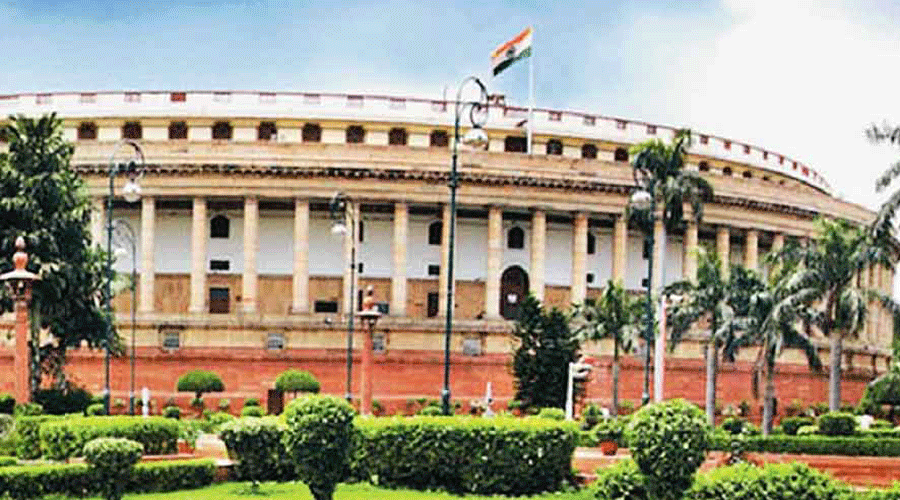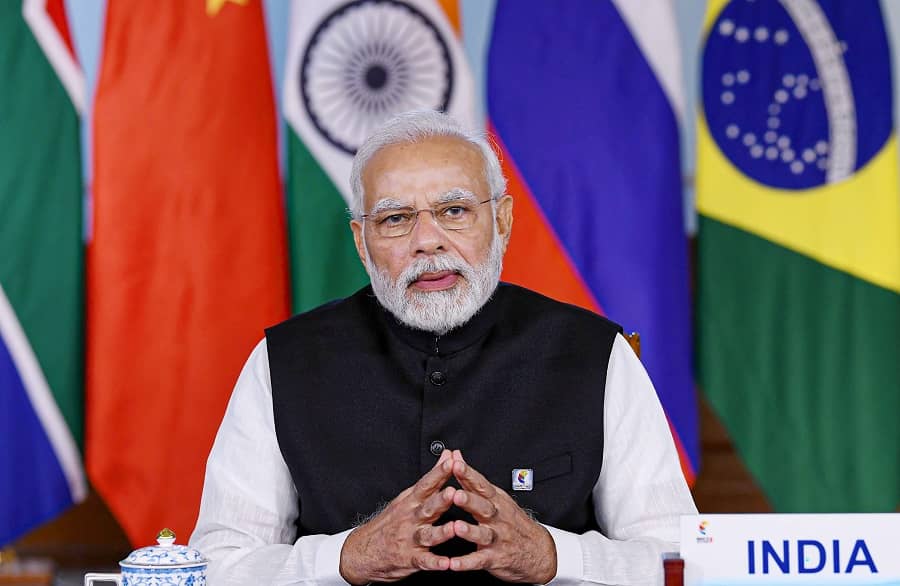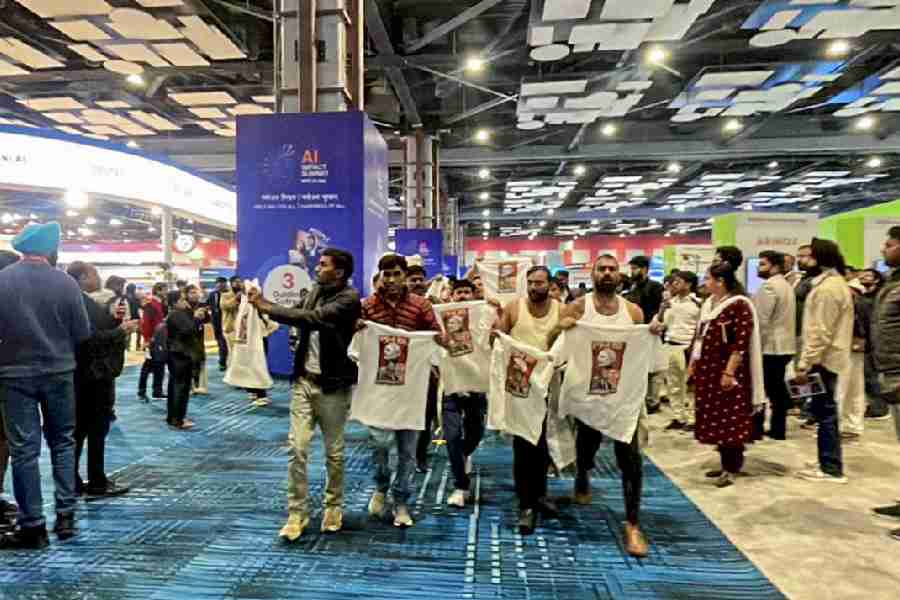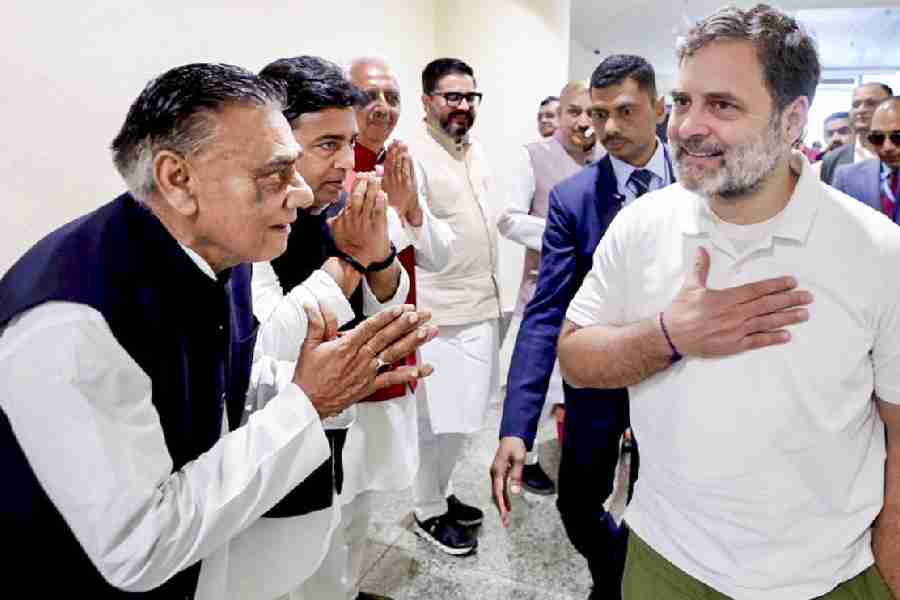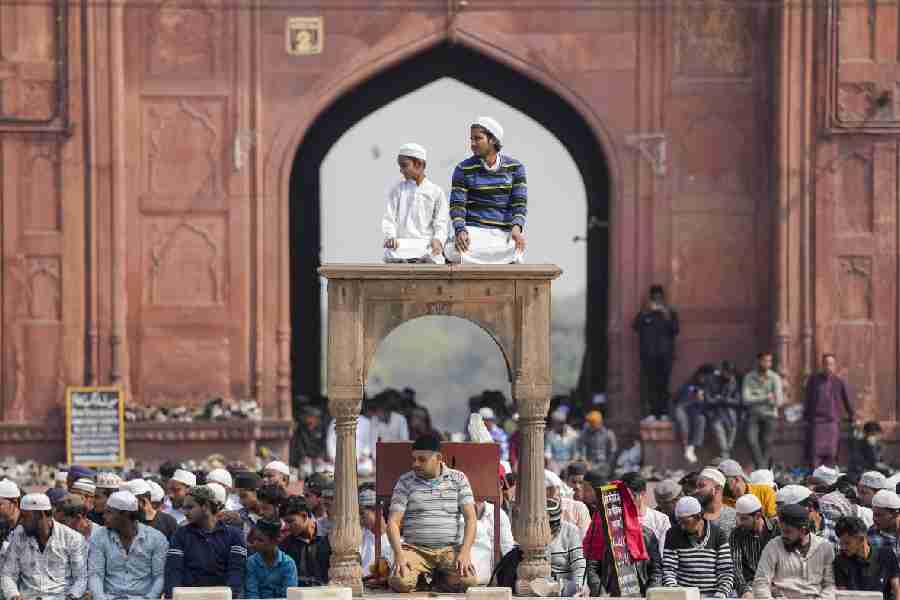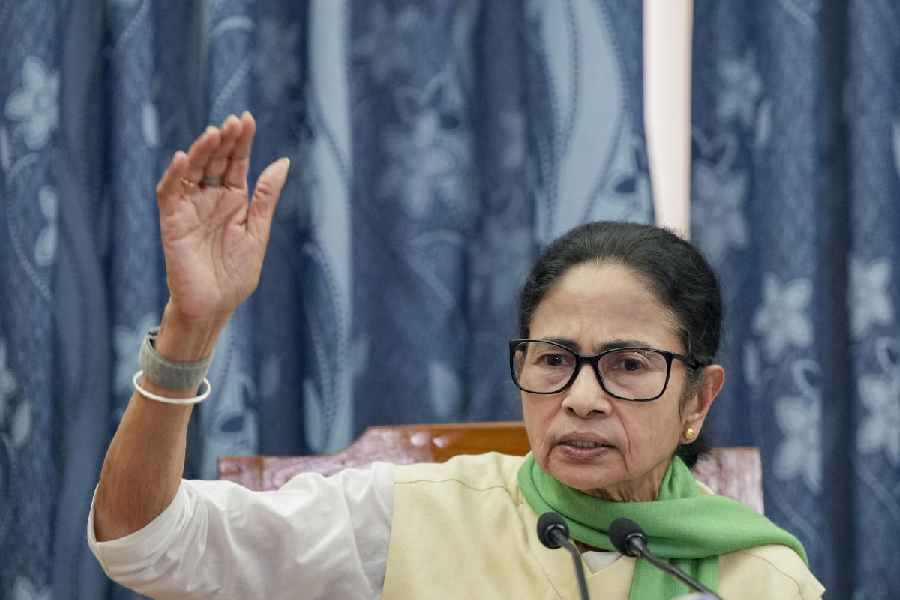You are entering New India, where Kim Jong-un is not in power.
Opposition parties on Thursday were up in arms over additions to the list of unparliamentary expressions, alleging an attempt to muzzle them and underlining that many of the new entries are terms they use to describe the Narendra Modi government.
The backlash forced Lok Sabha Speaker Om Birla to rush to clarify that no words stood automatically “banned” and that the context of a word’s use was key. He stressed that which comments to expunge remained the presiding officer’s discretion – a reassurance likely to have limited appeal for Opposition members.
“No word has been banned. Honourable members have the constitutionally granted right of freedom of expression and nobody can take it,” Birla said at a hurriedly convened media briefing.
“The context in which certain words and expressions are used is important and based on it the Chair can expunge from the records (expressions) deemed unparliamentary.”
The new unparliamentary expressions include jumlajeevi (person who lives by rhetoric), dhindora peetna (to blow one’s own trumpet), taanashah (dictator), ahankaar (arrogance), scandal, Snoopgate, windbag.
Among the other English words added to the list are corrupt/ corruption, coward, criminal, crocodile tears, cruel, deceived, debacle, drama, duplicity, erroneous, eyewash, fake, fudge, gag, gaslighting, hypocrite, incompetent, lollipops, misinformation, mislead, partisan, ridicule.
The longer list of new Hindi words includes anpadh (illiterate) in a country where nearly a quarter of the population is still unlettered, apmaan (insult), ulta chor kotwal ko daante (pot calling the kettle black), qatl (murder), kaala dhan (black money), kaala bazaari (black marketeering), gaddaar (traitor), tadipaar (externed).
“All words used by the Opposition to describe the reality of Modi Sarkar now to be considered ‘unparliamentary’. What next Vishguru?” asked Congress communications chief Jairam Ramesh, using the Congress’s uncomplimentary pun on vishwaguru (world leader), a term the Prime Minister’s admirers have coined for him.
The Trinamul Congress tweeted: “Interestingly the words that have received the new tag of unparliamentary are all adjectives used for the incumbent. Is this a pre-emptive step to prevent shame? Forced praises are clearly not coming @BJP4India’s way. When they begin to lose the plot; they cry foul!”
Individual MPs, who will now have to choose their words more carefully, too have spoken out, among them Rahul Gandhi of the Congress and Mohua Moitra of Trinamul.
“Words used in discussions and debates which correctly describe the PM’s handling of the government, now banned from being spoken. Example: ‘Jumlajeevi Taanashah shed Crocodile Tears when his lies and incompetence were exposed’,” Rahul tweeted.
Moitra tweeted in the same vein: “You mean I can’t stand up in Lok Sabha & talk of how Indians have been betrayed by an incompetent government who should be ashamed of their hypocrisy?”
Manoj Jha of the RJD said it’s possible that in the next round, the word “democracy” itself would be declared unparliamentary.
CPM Rajya Sabha member V. Sivadasan described the latest inclusions to the list as a way of gagging MPs.
Other members wondered how any meaningful discussion was possible if expressions like “black money” – a subject on which Modi has spoken at length in the past – corruption, Snoopgate (used for the Pegasus controversy), bhooke (hungry), mili bhagat (connivance) were disallowed.
Birla, however, emphasised that under House rules, a member has the right to oppose through a notice the expunction of any portion of the member’s speech in the House.
He said that publishing an updated list of unparliamentary expressions ahead of the monsoon session was an annual practice.
Birla held up a fat book, saying it was an “1,100-page dictionary”, a compilation of all the words and expressions deemed unparliamentary. He said the compilation had been first released in 1959 and then in 1986, 1992, 1999, 2004, 2009 and every year since then.
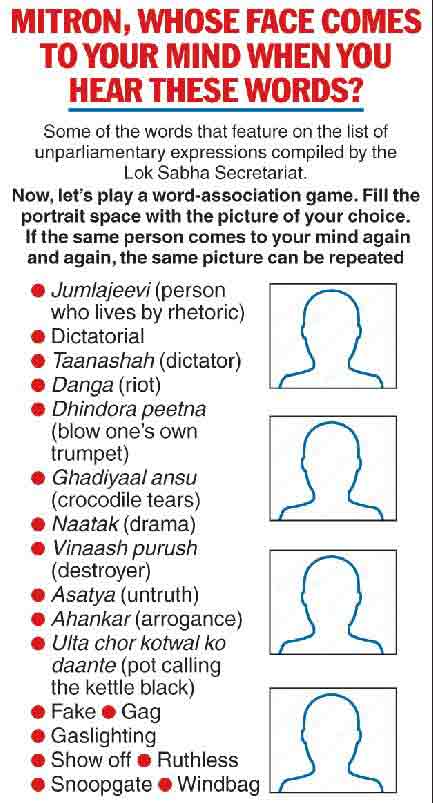
Birla stressed that the list was a mere compilation of expressions expunged from the records of Parliament and the Assemblies, often because of objections to these words from some of the members themselves.
“Many of the words (newly declared unparliamentary) here were used by members from the Treasury benches,” he said.
Asked specifically what would happen if a member used an expression deemed unparliamentary according to the updated list, Birla said: “The list doesn’t mean the words are banned. Members can use any word, while remaining mindful of the dignity of the House.”
On the Opposition protests, he said: “The honourable members who are protesting over the list are seasoned members and are well aware of the rules and procedures of the House. You should ask them why they are protesting.”
The latest compilation had been circulated among Lok Sabha members earlier this week, ahead of the monsoon session that begins next week.
The Lok Sabha secretariat prepared the list, based on terms expunged from the records in both Houses of Parliament and the state legislatures in 2021, and in some Commonwealth parliaments in 2020.
Although the Rajya Sabha is a separate chamber with its own rules of procedure, the Upper House usually takes the cue on unparliamentary expressions from the publication brought out by the Lok Sabha secretariat.
The Lok Sabha secretariat too acknowledged that many of the words on their own were not unparliamentary. “Some of these keywords may not appear unparliamentary unless read in conjunction with the other expressions spoken during the parliamentary procedures,” it said.
Among the notable older inclusions in the ever-growing compilation are Goebbels, Godse, Hitler, fascism, fascists, homosexual, honest/ honesty, God-help-us and God-willing.

